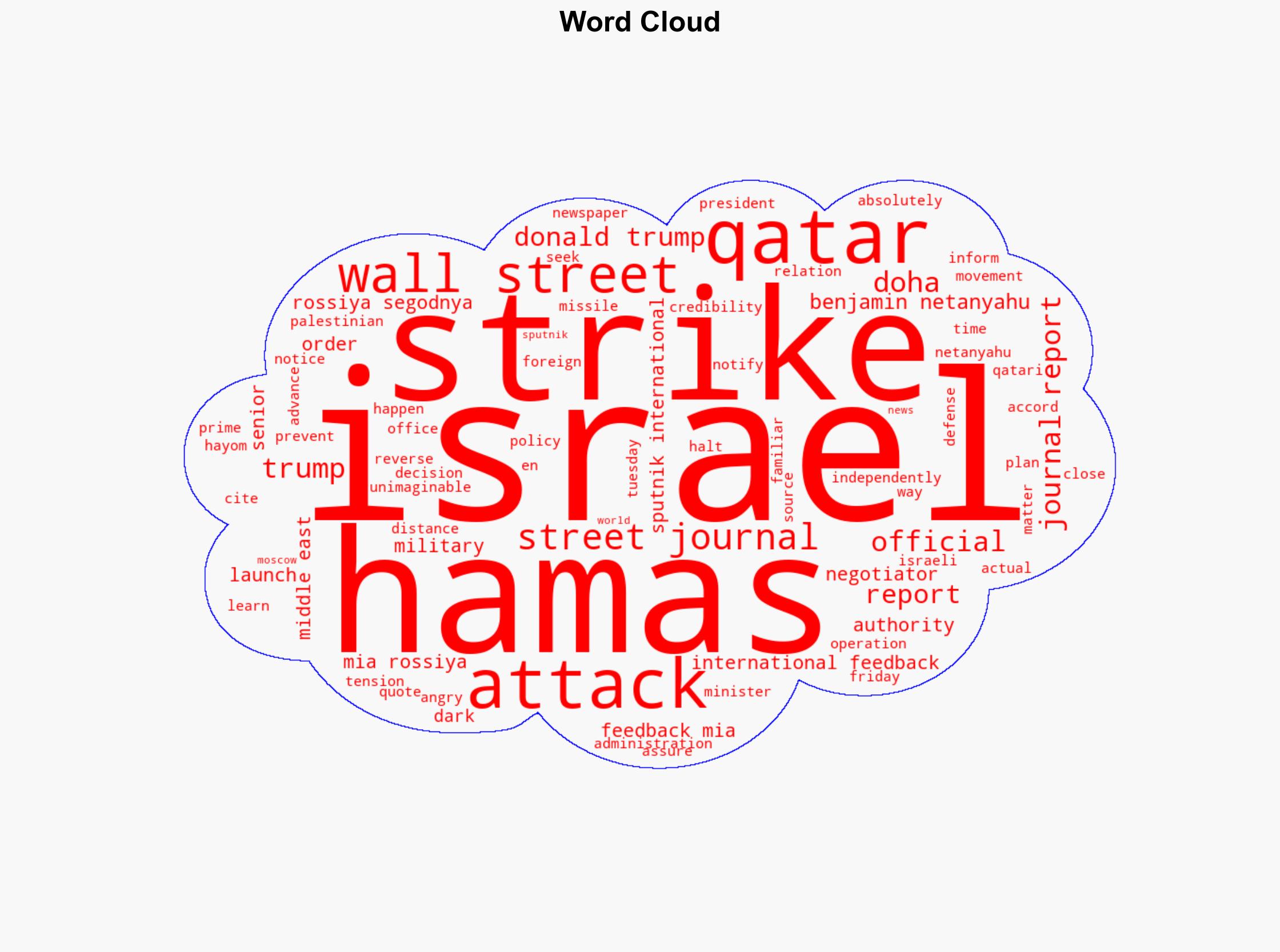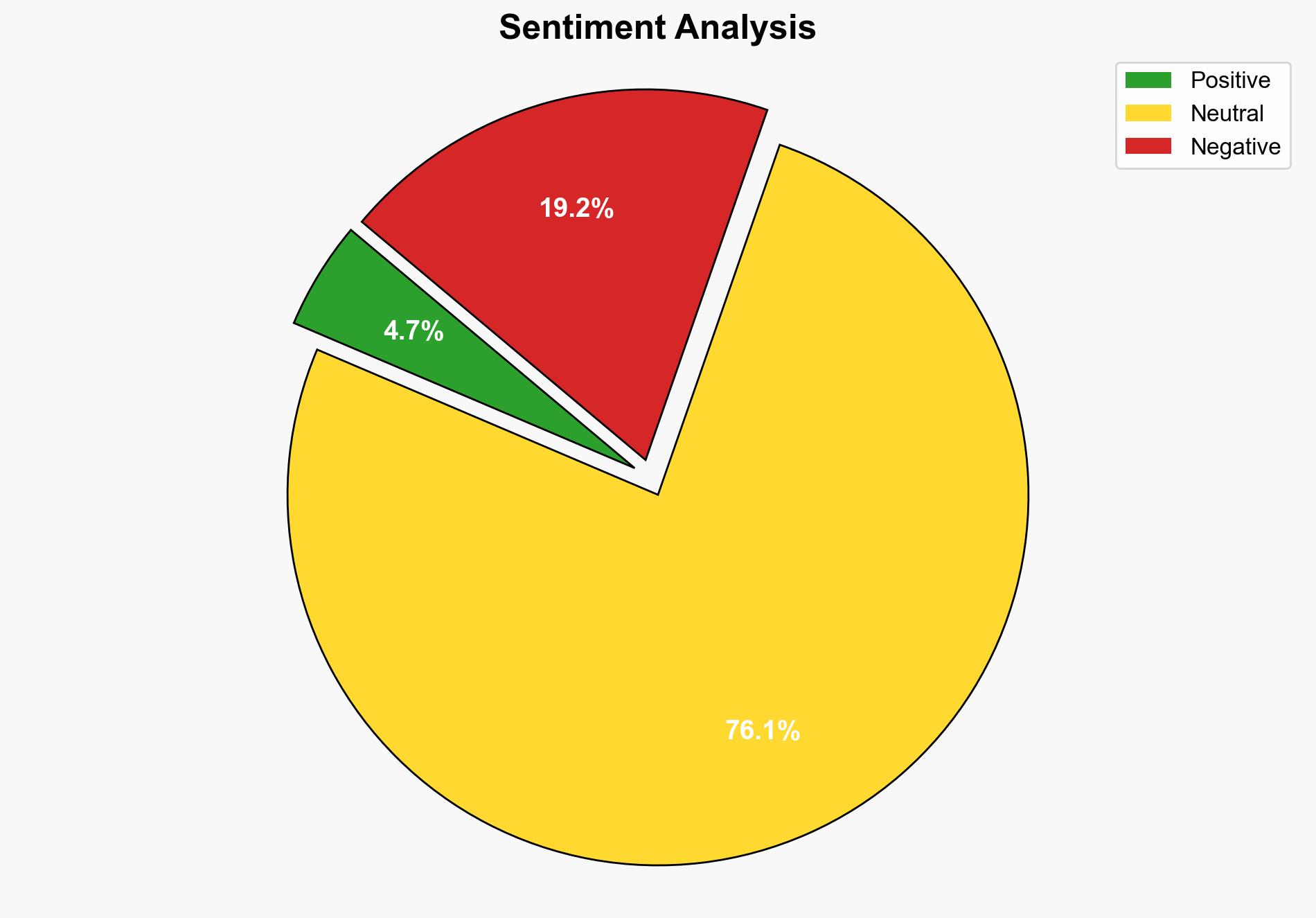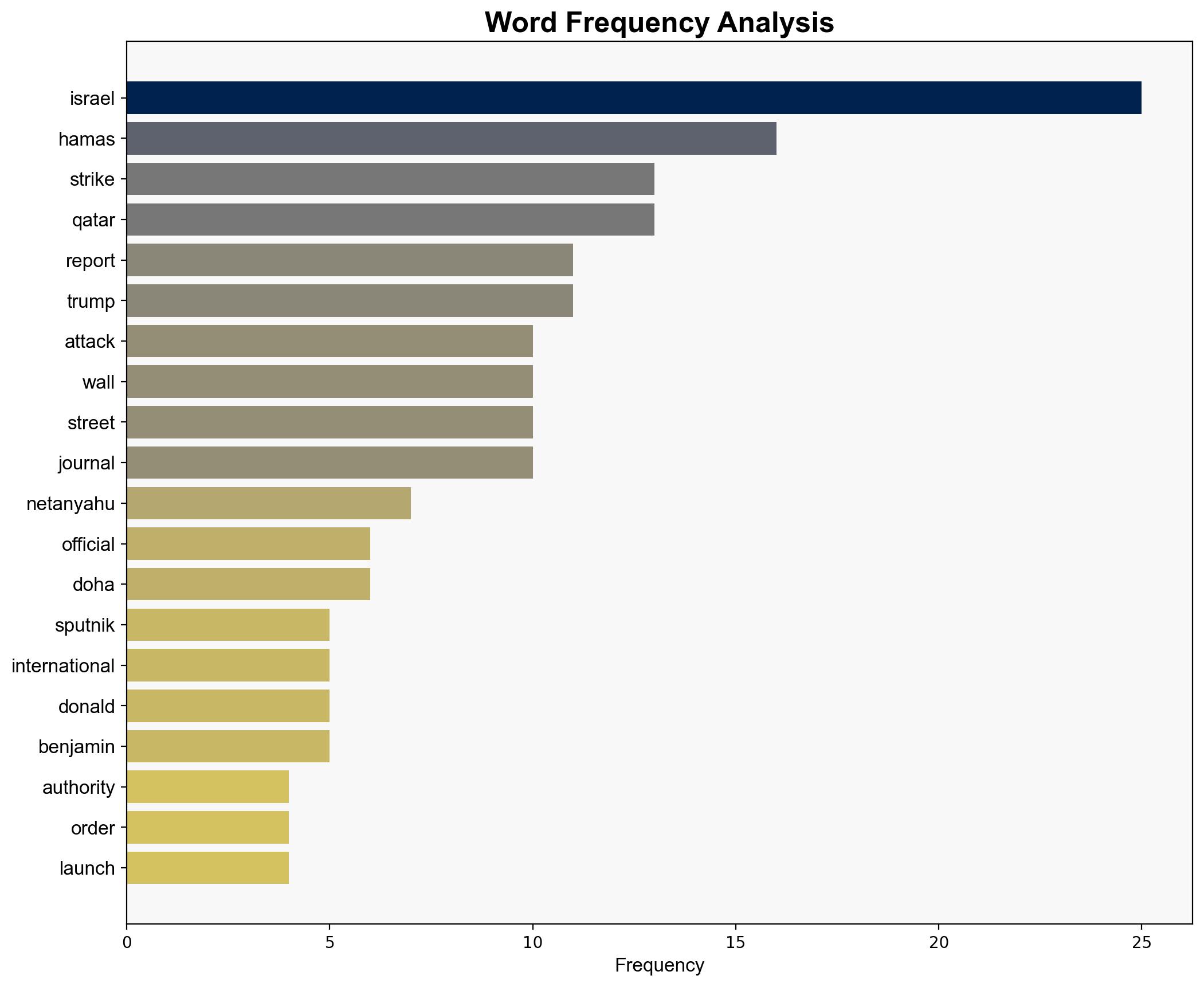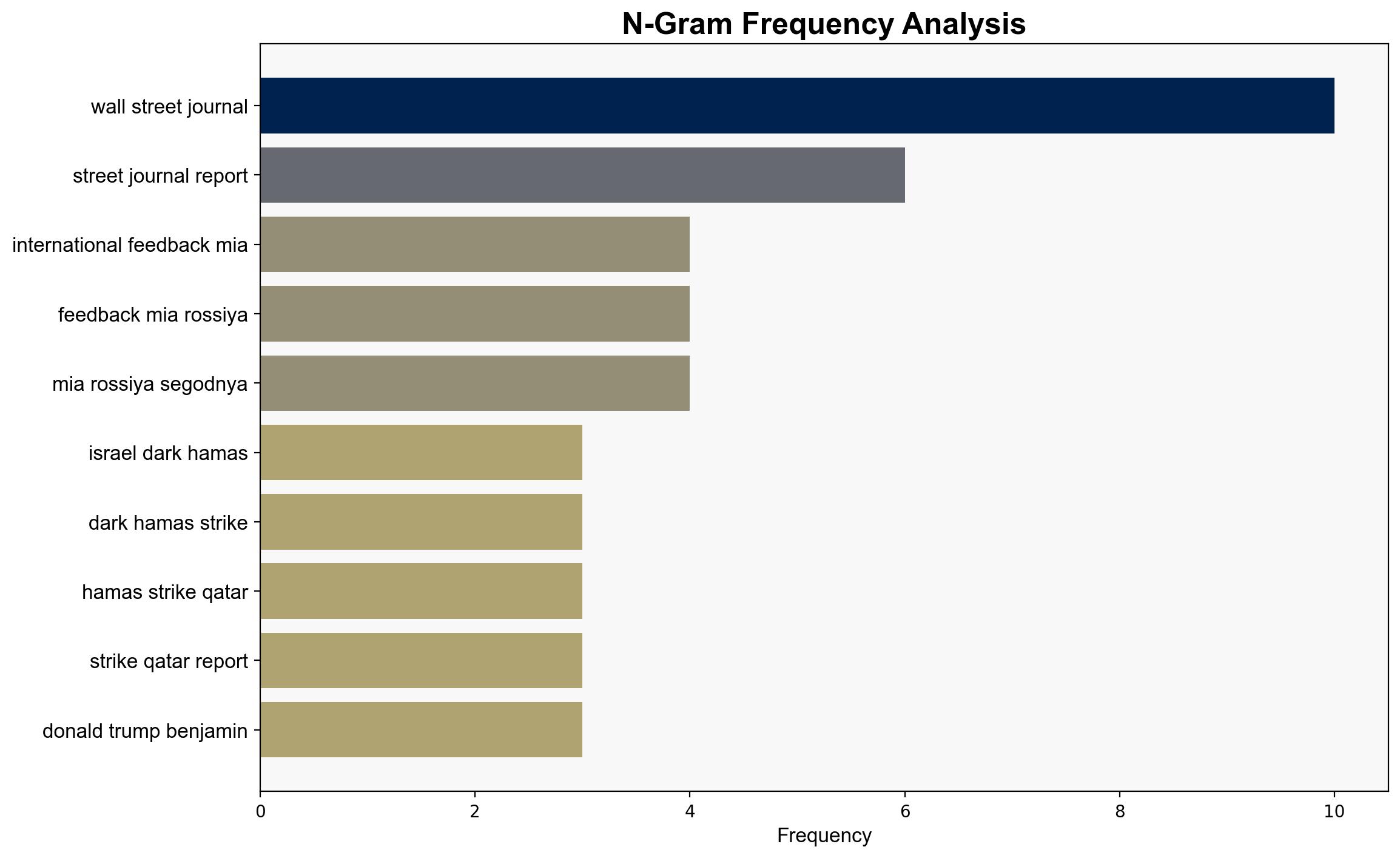Israel Kept US in the Dark Before Hamas Strikes in Qatar Report – Sputnikglobe.com
Published on: 2025-09-13
Intelligence Report: Israel Kept US in the Dark Before Hamas Strikes in Qatar Report – Sputnikglobe.com
1. BLUF (Bottom Line Up Front)
The most supported hypothesis is that Israel intentionally withheld information from the US regarding the planned strike on Hamas in Qatar to maintain operational security and avoid diplomatic interference. Confidence level: Moderate. Recommended action: Enhance diplomatic communication channels and intelligence-sharing protocols between the US and Israel to prevent future surprises and maintain strategic alignment.
2. Competing Hypotheses
1. **Hypothesis A**: Israel deliberately kept the US uninformed about the strike on Hamas in Qatar to prevent any diplomatic intervention that could have delayed or canceled the operation. This hypothesis suggests a strategic decision to prioritize operational success over diplomatic transparency.
2. **Hypothesis B**: The lack of communication was a result of internal miscommunication or oversight within Israeli intelligence or military channels, rather than a deliberate decision to exclude the US from the planning process.
Using ACH 2.0, Hypothesis A is better supported due to the context of heightened tensions and Israel’s history of prioritizing operational security in sensitive military actions. Hypothesis B lacks corroborative evidence and is less consistent with known Israeli operational protocols.
3. Key Assumptions and Red Flags
– **Assumptions**: Hypothesis A assumes that Israel had a calculated reason to exclude the US, possibly fearing diplomatic pushback. Hypothesis B assumes that procedural errors can occur even in high-stakes operations.
– **Red Flags**: The report’s reliance on anonymous sources and the absence of direct statements from key Israeli or US officials raise questions about the reliability of the information. The potential bias of the source (Sputnikglobe.com) should also be considered.
– **Blind Spots**: The report does not address potential Israeli-Qatari backchannel communications or the broader geopolitical implications of the strike.
4. Implications and Strategic Risks
– **Geopolitical Risks**: The incident could strain US-Israel relations, affecting future cooperation on Middle East policy.
– **Escalation Scenarios**: If the US perceives a pattern of exclusion, it may lead to reduced support for Israeli initiatives or increased scrutiny of Israeli actions.
– **Psychological Impact**: The perception of unilateral Israeli actions could embolden other regional actors to act independently, potentially destabilizing the region further.
5. Recommendations and Outlook
- Enhance bilateral communication protocols to ensure timely intelligence sharing, reducing the risk of diplomatic fallout.
- Conduct joint scenario planning exercises to align strategic objectives and responses to regional threats.
- Scenario Projections:
- **Best Case**: Improved US-Israel communication leads to stronger strategic alignment and regional stability.
- **Worst Case**: Continued unilateral actions by Israel result in a significant diplomatic rift with the US.
- **Most Likely**: Incremental improvements in communication with occasional lapses due to operational security concerns.
6. Key Individuals and Entities
– Donald Trump
– Benjamin Netanyahu
7. Thematic Tags
national security threats, cybersecurity, counter-terrorism, regional focus





